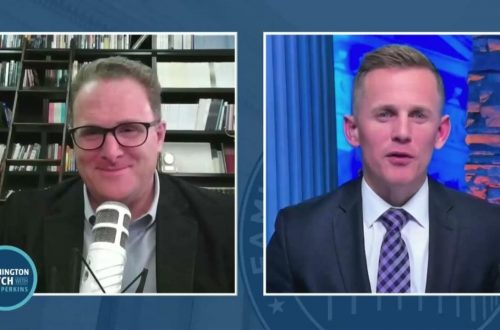The executive committee of the ETS has just released a statement concerning the resignation of Dr. Francis Beckwith. The executive committee says that Roman Catholic theology is incompatible with the doctrinal basis of the ETS. Here are the relevant lines:
The Executive Committee recognizes Dr. Beckwith’s resignation as President and subsequent withdrawal from membership as appropriate in light of the purpose and doctrinal basis of the Evangelical Theological Society and in light of the requirements of wholehearted confessional agreement with the Roman Catholic Church.
The work of the Evangelical Theological Society as a scholarly forum proceeds on the basis that “the Bible alone and the Bible in its entirety, is the Word of God written and is therefore inerrant in the autographs.” This affirmation, together with the statement on the Trinity, forms the basis for membership in the ETS to which all members annually subscribe in writing. Confessional Catholicism, as defined by the Roman Catholic Church’s declarations from the Council of Trent to Vatican II, sets forth a more expansive view of verbal, infallible revelation.
Specifically, it posits a larger canon of Scripture than that recognized by evangelical Protestants, including in its canon several writings from the Apocrypha. It also extends the quality of infallibility to certain expressions of church dogma issued by the Magisterium (the teaching office of the Roman Catholic Church), as well as certain pronouncements of the pope, which are delivered ex cathedra, such as doctrines about the immaculate conception and assumption of Mary.
You can read the rest of it here: “ETS on Beckwith” – Christianity Today Liveblog.
The executive committee interprets the ETS doctrinal basis so as to exclude Roman Catholics, yet Dr. Beckwith has said that as a Roman Catholic he can sign ETS’s doctrinal basis in good conscience (source). At the very least, I think this discrepancy shows that Ray Van Neste was correct in 2001 when he contended that the ETS’s doctrinal statement is too skimpy. It needs to be more explicitly evangelical. This is an issue that the ETS must take up, and I will have much more to say on this point later.
Recent Coverage:
“Prominent evangelical returns to Catholic roots” – by Sam Hodges (Dallas Morning News)




3 Comments
Bryan L
Why does it need to be taken up if Catholics aren’t trying to stay in? Beckwith didn’t fight for the right to stay in. Even if it’s not in the statement I think it’s clear that the society is for Evangelicals. It is called the Evangelical Society after all.
Even with their small statement they’ve already tried to kick out 3 people, people who seemed very Evangelical to me. Anyway, after a while people get the hint when they’re not welcome or they feel stifled and they don’t try sticking around. The statement just doesn’t really seem like a big issue.
Blessings,
Bryan L
Wesley
What about Evangelical Catholics?
But anyway…I don’t think the ETS statement excludes Catholics (at least those of a conservative bent)
“specifically, it posits a larger canon of Scripture than that recognized by evangelical Protestants, including in its canon several writings from the Apocrypha.â€
The ETS statement does not define the actual contents of the Canon, therefore if I held that 1 Enoch was canonical I can still believe that “the Bible alone and the Bible in its entirety, is the Word of God written and is therefore inerrant in the autographsâ€
“ It also extends the quality of infallibility to certain expressions of church dogma issued by the Magisterium (the teaching office of the Roman Catholic Church), as well as certain pronouncements of the pope, which are delivered ex cathedra, such as doctrines about the immaculate conception and assumption of Mary.â€
The ETS says nothing about extension of infallibility, (“I am a male†is an infallible statement, that is hardly going against ETS to pronounce an infallible statement) The RC never claimed that this teaching authority is “the Word of God writtenâ€. In fact the ETS statement doesn’t take a position at all on the role of tradition in theology and hermenutics. So if I were Catholic I could easily sign on as well.
If they desire to only include Protestants, then they need to define the statement to do so.
benarbour03
I agree with Wesley, and Dr. Burk, who I assume is making a similar point by referencing Ray Van Neste’s article.